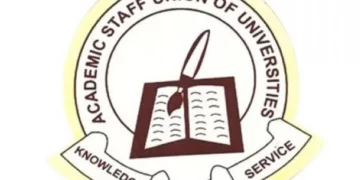The Federal Government has approved a comprehensive reform of admission entry requirements into all tertiary institutions across Nigeria to democratise access to higher education.
This was disclosed on Tuesday in a press statement signed by Boriowo Folasade, the Director, Press and Public Relations of the Federal Ministry of Education.
According to her, the new policy was driven by the Minister of Education, Dr Maruf Tunji Alausa, and represented a bold step towards advancing the Renewed Hope Agenda and promoting inclusive education as a foundation for national development.
Under the new framework, the Federal Government sought to remove barriers to admission while maintaining academic standards. The guidelines apply to universities, polytechnics, colleges of education, and Innovation Enterprise Academies (IEAs) nationwide.
In the statement, Dr Alausa explained that the reform became necessary following years of restricted access that left many qualified candidates unable to gain admission into tertiary institutions.
According to him, over two million candidates sit for the Unified Tertiary Matriculation Examination (UTME) annually, yet only about 700,000 are admitted. This imbalance, he noted, was not due to a lack of ability or interest but to outdated and overly stringent entry requirements that must now give way to fairness and opportunity.
The Minister said the reform is expected to expand access to tertiary education and create room for an additional 250,000 to 300,000 students to be admitted each year.
This, he emphasised, was a deliberate effort to ensure that no capable young Nigerian is left behind due to outdated admission policies.
“The time has come to open the doors wider, without compromising quality. This reform will ensure that every willing and qualified Nigerian youth has a fair chance to pursue tertiary education and fulfil their potential.
“Harmonising admission guidelines will help reduce the number of out-of-school youths, strengthen vocational and technical education, and align Nigeria’s tertiary education system with global and industry standards,” the Minister was quoted as saying.
LEADERSHIP reports that for universities, the minimum entry requirement is five credit passes in relevant subjects, including English Language, obtained in not more than two sittings as Mathematics remains compulsory for Science, Technology, and Social Science courses.
For polytechnics (National Diploma level), a minimum of four credit passes is required in relevant subjects, including English Language for non-science courses and Mathematics for science-related programmes.
For Higher National Diploma (HND) programmes, five credit passes in relevant subjects, including English Language and Mathematics, are required.
In colleges of education (NCE level), candidates must obtain at least four credit passes, with English Language mandatory for Arts and Social Science courses, and Mathematics compulsory for Science, Vocational, and Technical courses.
For Bachelor of Education (B.Ed) programmes, the minimum is five credit passes, including English Language and Mathematics.
Innovation Enterprise Academies (IEAs) will now adopt the same requirements as polytechnics for the National Diploma (ND) programme. It noted that the National Innovation Diploma (NID) is hereby abolished, while the National Industrial Diploma (NID) previously issued by IEAs will be phased out and replaced with the ND to ensure uniformity, credibility, and progression opportunities for graduates.
The National Board for Technical Education (NBTE) has been directed to re-accredit all IEAs nationwide to align with the new ND standards. Any institution that fails to transition to full accreditation will be de-accredited.





